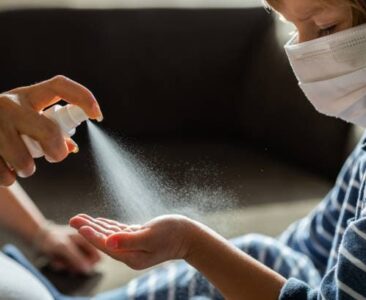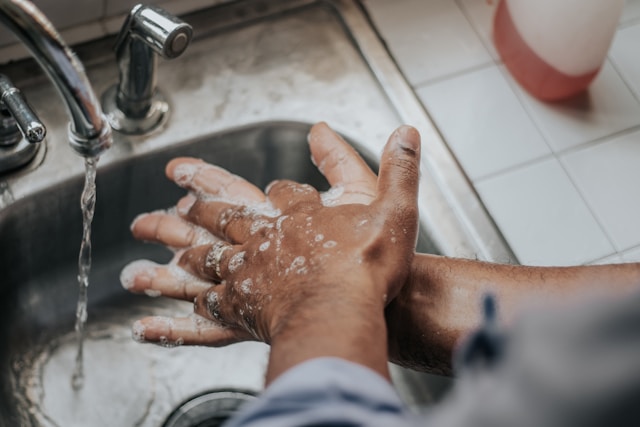Antiseptics hold an important place both in medical practice and in the daily lives of every person. These substances are designed to destroy or suppress the growth of microorganisms on the skin, mucous membranes, and various surfaces. Since their discovery and introduction into surgical practice, antiseptics have significantly reduced the level of infections associated with surgeries and wounds. Today, their use has gone far beyond hospitals, becoming an integral part of home hygiene, public health, and even the beauty industry. For the residents of Portugal, as well as for the rest of the world, antiseptics play a key role in maintaining health and preventing infectious diseases.
The Role of Antiseptics in Surgery and Medicine
The history of antiseptic use in medicine began in the 19th century when Joseph Lister applied carbolic acid to sterilize surgical instruments and wounds. This discovery revolutionized surgery and greatly reduced postoperative infections. Modern antiseptics in medicine include a wide range of preparations: alcohol-based solutions, iodine-containing agents, hydrogen peroxide, chlorhexidine, and many others. Each has specific properties and is used depending on the task.
In operating rooms, antiseptics are used to sterilize surgeons’ hands, prepare the patient’s skin before surgery, and disinfect instruments. Doctors and medical staff carefully monitor the correct use of these agents, because even the slightest violation can lead to infections, complications, and prolonged treatment. Besides surgery, antiseptic preparations are actively used in dentistry, gynecology, wound and burn care, and infection prevention in intensive care units.
Antiseptics in Everyday Life: Hygiene and Safety
In recent decades, the use of antiseptics has expanded beyond medical institutions and become a common element of home hygiene. This trend became especially noticeable during the COVID-19 pandemic, when hand and surface disinfectants became mandatory items in public places, transportation, and homes. Antiseptic gels, sprays, wipes—all help effectively combat viruses and bacteria, reducing the risk of infection.
In Portuguese homes and offices, antiseptics with various compositions and fragrances are increasingly common, making their use more comfortable and pleasant. Many prefer alcohol-based solutions with added moisturizing components to avoid skin dryness. For families with children, the safety of used products is especially important—many manufacturers produce hypoallergenic and eco-friendly antiseptics suitable even for the youngest.
Besides hands, antiseptics are used to treat household surfaces such as door handles, kitchen tables, phones, and other frequently touched objects. This helps reduce the risk of spreading harmful microbes and maintains cleanliness in living and working spaces.
Modern Technologies and Innovations in the Field of Antiseptics
Technological progress also influences the field of antiseptic products. Laboratories are developing new formulas with a broader spectrum of action and improved safety for humans and the environment. Antiseptics based on silver nanoparticles, which are highly effective against a wide range of bacteria and viruses, are emerging.
Natural component-based products are gaining popularity as well, such as extracts of aloe, tea tree, calendula, and other plants with antimicrobial effects. Such products meet the demands of modern consumers who strive for eco-friendliness and minimize chemical exposure to the body.
For medical institutions, automated disinfection systems are being developed that help ensure room sterility without human involvement. Robots and ultraviolet installations enable fast and efficient destruction of microorganisms, which is especially important in high-risk infection environments.
The Importance of Proper Use of Antiseptics
Despite the wide availability and variety of antiseptic agents, it is important to remember their proper and conscious use. Excessive or incorrect use can lead to skin irritation, allergic reactions, and even microbial resistance to the agents. Doctors recommend using antiseptics only when truly necessary, while in normal conditions basic hygiene rules such as regular handwashing with soap should be followed.
In medicine, the correct choice of antiseptic and adherence to application technique are the key to successful treatment and infection prevention. In everyday life, reasonable use of antiseptics helps preserve health and ensure safety for oneself and others.
Conclusion
Antiseptics are indispensable helpers both in surgery and medicine and in everyday life. Thanks to them, the level of infectious diseases has been significantly reduced and the quality of medical care has improved. For the people of Portugal, as well as worldwide, modern antiseptic agents provide protection and peace of mind amid constant health challenges. With technological advances and growing awareness about their proper use, antiseptics will continue to play a key role in preserving the health of every individual.



